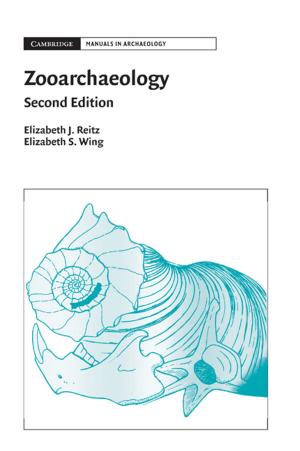The Emergence of Modern Aesthetic Theory
Religion and Morality in Enlightenment Germany and Scotland
Nonfiction, Social & Cultural Studies, Political Science, Politics, History & Theory, Religion & Spirituality, Philosophy, Social Science| Author: | Simon Grote | ISBN: | 9781108506137 |
| Publisher: | Cambridge University Press | Publication: | October 26, 2017 |
| Imprint: | Cambridge University Press | Language: | English |
| Author: | Simon Grote |
| ISBN: | 9781108506137 |
| Publisher: | Cambridge University Press |
| Publication: | October 26, 2017 |
| Imprint: | Cambridge University Press |
| Language: | English |
Broad in its geographic scope and yet grounded in original archival research, this book situates the inception of modern aesthetic theory – the philosophical analysis of art and beauty - in theological contexts that are crucial to explaining why it arose. Simon Grote presents seminal aesthetic theories of the German and Scottish Enlightenments as outgrowths of a quintessentially Enlightenment project: the search for a natural 'foundation of morality' and a means of helping naturally self-interested human beings transcend their own self-interest. This conclusion represents an important alternative to the standard history of aesthetics as a series of preludes to the achievements of Immanuel Kant, as well as a reinterpretation of several canonical figures in the German and Scottish Enlightenments. It also offers a foundation for a transnational history of the Enlightenment without the French philosophes at its centre, while solidly endorsing historians' growing reluctance to call the Enlightenment a secularising movement.
Broad in its geographic scope and yet grounded in original archival research, this book situates the inception of modern aesthetic theory – the philosophical analysis of art and beauty - in theological contexts that are crucial to explaining why it arose. Simon Grote presents seminal aesthetic theories of the German and Scottish Enlightenments as outgrowths of a quintessentially Enlightenment project: the search for a natural 'foundation of morality' and a means of helping naturally self-interested human beings transcend their own self-interest. This conclusion represents an important alternative to the standard history of aesthetics as a series of preludes to the achievements of Immanuel Kant, as well as a reinterpretation of several canonical figures in the German and Scottish Enlightenments. It also offers a foundation for a transnational history of the Enlightenment without the French philosophes at its centre, while solidly endorsing historians' growing reluctance to call the Enlightenment a secularising movement.















